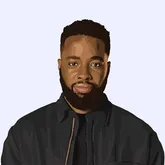What Recovery Looks Like for Me in Real Time
I hope you remember that healing takes time, and that you don’t have to do it alone.

Dunstan Nicol-Wilson is from London, England, and was diagnosed with the “invisible disorder” sickle cell anemia from birth. Nicol-Wilson has a BSc in bioscience and an MSc in public health (global health). He has spent his career in research governance and is now a clinical project manager. In addition, he is also a freelance columnist and mentor. Nicol-Wilson began advocating for sickle cell anemia in 2018 through various talks, columns, and community outreach. He hopes his advocacy will raise awareness for sickle cell and blood donation, encouraging others to share their stories. Outside of work and advocacy, he loves to travel, try new experiences, and spend time with friends and family. He can be contacted via Instagram and LinkedIn.
I hope you remember that healing takes time, and that you don’t have to do it alone.
When people asked if I was OK, I defaulted to "I'm fine." But beneath the surface was a tangle of self-blame, doubt, and frustration that I hadn't fully processed.
In that state, all my commitments, work, meetings, therapy sessions, and appointments faded away. All I could focus on was survival.
I've often wondered what I've learned from past relationships and what emotional setbacks I've had to overcome, particularly the insecurities that arise when you live with a chronic condition like this.
When a crisis starts, it feels like the peaceful existence I once knew is crumbling away.
To be complete, a man must be nurturing, resilient, emotionally available, open, and more.